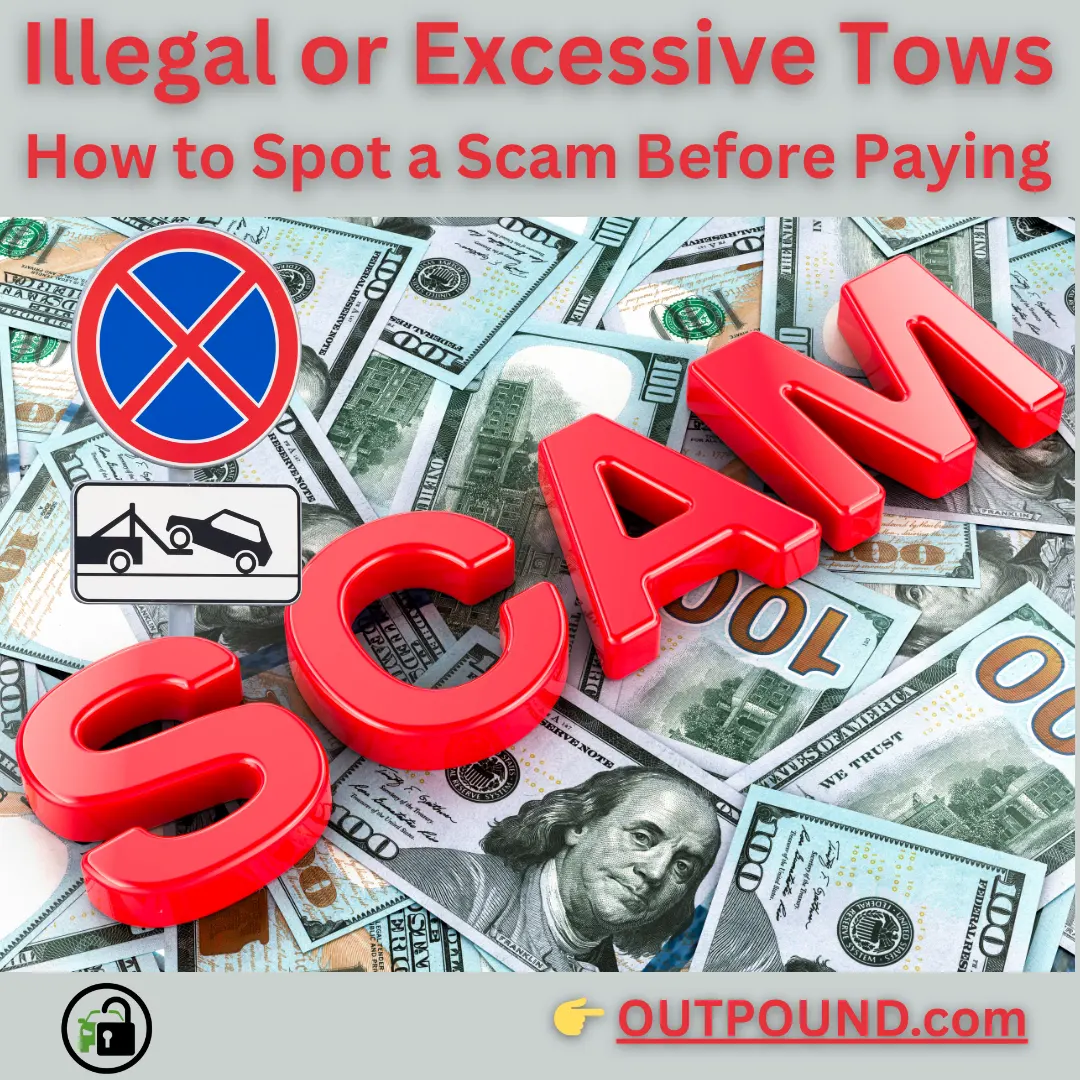How to Spot a Scam Before Paying

If you’ve ever walked out to an empty parking space and felt your soul leave your body, congratulations, you’ve met the towing industry. While some tows are legitimate, a shocking number are barely legal or outright scams, designed to turn confusion into cold, hard cash. Think of it as legalized larceny with paperwork.
The Red Flags Start Before the Hook
The best tow scams begin with terrible signage. Maybe there’s a faded “Tow-Away Zone” half-hidden behind a bush or written in size 8 font. Or worse, no sign at all. Many states require visible, legible, and illuminated signage at every entrance, but tow companies know most drivers never check. And when you protest? “It was posted.” Sure, probably in invisible ink.
Then there’s the bait lot hustle, private property owners who contract with aggressive towing companies. They prowl apartment complexes, shopping centers, and bars, waiting for a single misstep: a crooked tire over a line, a missing parking pass, a minute past curfew. Within seconds, you’re hooked, hauled, and billed hundreds.
The Fee Fiesta
You might think the tow fee is the problem. Nope, that’s just the appetizer. The real money’s in “administrative,” “processing,” or “release” fees, all conveniently undefined. Some companies charge for “after-hours service”, even if you showed up during business hours. Others tack on “extra labor” for... well, towing your car.
And don’t get too excited when you find your car, it’s often not even accessible until you’ve paid in full. They’ll quote state law to justify this, but in reality, it’s a power move: they know you’ll pay anything to get your keys back.
How They Get Away With It
Tow laws vary by state, and enforcement is usually nonexistent. Local governments delegate towing oversight to whoever bids lowest, not who behaves best. Some cities require permits or police authorization for private tows; others let anyone with a truck and a chain start a business.
Tow companies thrive on this inconsistency. They know you’re unlikely to sue over a few hundred bucks, and small claims court takes time most people don’t have. It’s not a scam if no one stops it, it’s just business.
Spot the Scam Early
- Check signage before leaving your car. If it’s missing required info (company name, phone number, tow fee limits), that’s a red flag.
- Ask for documentation when retrieving your car. Tow yards must provide proof of authorization and itemized charges.
- Verify local limits. Many states cap towing or storage fees—but tow yards “forget” to mention that.
- Take photos of everything: signs, receipts, even the lot. Paper trails scare scammers.
- Use OUTPOUND.com to identify whether your tow meets state legal requirements before you pay a dime.
Winning Isn’t Everything—It’s the Only Thing for Them, Unless You’ve Got OUTPOUND!
Illegal and excessive tows thrive on chaos. Tow companies know you’re stressed, angry, and desperate to get your car back—and they use that moment to cash in.
But you don’t have to play along. With a quick visit to OUTPOUND.com, you can verify your tow’s legality, check fee limits, and even prepare a dispute before walking into the yard. Because nothing ruins a scammer’s day faster than an informed driver with screenshots and receipts.
So the next time someone says, “You can’t leave your car here,” just smile and think, “Maybe not, but I’ll be leaving with my money.”

